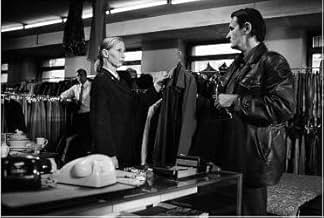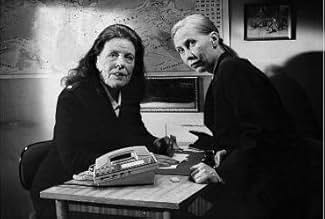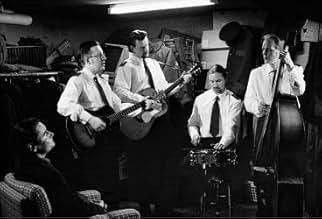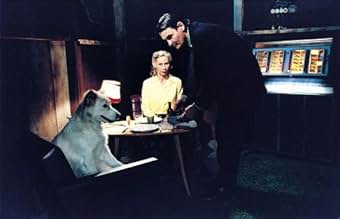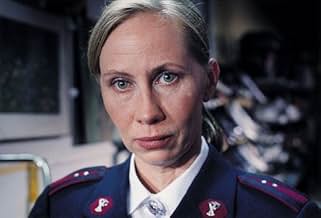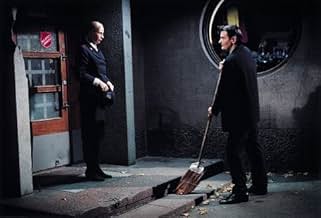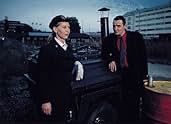The Man Without a Past, the second installment in Aki Kaurismäki's "losers" trilogy (the first being 1996's Drifting Clouds), is, to date, the only Finnish film to have received a Best Foreign Language Film Oscar nomination, and deservedly so. It's a wonderful, heartbreaking opus, and arguably Kaurismäki's finest movie.
At the story's center we find a nameless man (Markku Peltola), who arrives in Helsinki for unknown reasons. That same night, he's brutally assaulted by a group of punks. This incident makes him look dead, although we immediately learn he is alive, if completely amnesiac. With no idea of who he is or what he's supposed to do, he starts looking for a home and an employment. He manages to rent a "house" in the city outskirts (don't miss Sakari Kuosmanen as the landlord) and befriends Irma (Kati Outinen), a social worker who tries to help M (in lack of a better name, and given "X" is quite overused) as much as possible. It is this friendship, which slowly evolves into something deeper, that truly motivates the protagonist in his pursuit of a better life.
The Man Without a Past strikes us because, unlike other films involving amnesia, it makes us hope M won't recover his memory: what he experiences throughout the movie, the people he meets, that's what really matters. It's a little bit like a road movie (they never end with the characters reaching their destination), only this time the voyage involves the mind and the spirit. It's a similar voyage the director asks the audience to join, as he artfully explores human life and its chances of improvement.
Moving and reminiscent of Italian neorealism (De Sica, Rossellini, Visconti), The Man Without a Past is a flawless reflection on how happiness is to be found anywhere, no matter the circumstances.






